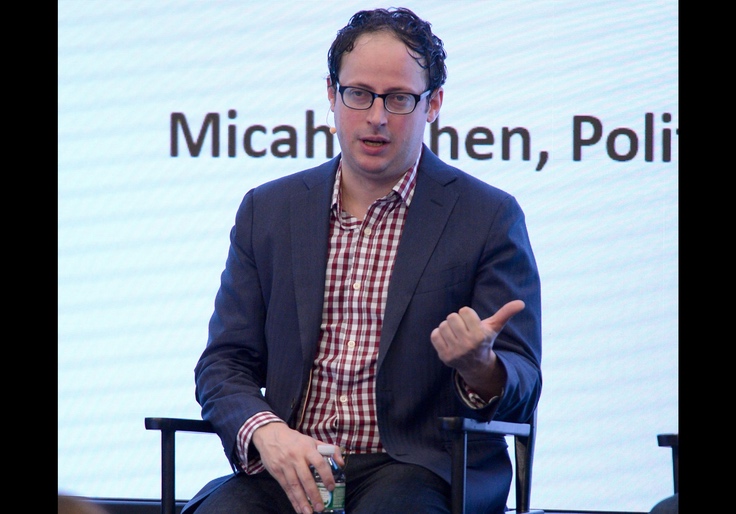REVIEW: ‘On the Edge: The Art of Risking Everything’ by Nate Silver

A couple of years after I graduated from college, concerned that my ability to understand philosophy was stagnating, I spent part of a year reading A Thousand Plateaus, the inscrutable magnum opus of French continental philosophers Félix Guattari and Gilles Deleuze. The book is hard to describe: Its chapters seem to have very little to do with each other, in turn invoking strange ideas about “rhizomes” and “war machines” and “blank faces.” (The chapter I remember best spends a lot of time trying to explain the philosophical significance of the shape of lobsters.)
Why the authors did this is something of a mystery. The most parsimonious answer is that European philosophers are just weird. But a more charitable explanation is that the book is an attempt to describe two different ways of thinking about the structure of the world. Deleuze and Guattari think that almost everyone thinks most everything is structured one way, but they want everyone to at least be able to think and structure the other way. Their weirdness is an effort—however unsuccessful—at trying to change the way their readers perceive the world.
Readers who are scared off by French philosophy should not take this opening digression as a warning against On the Edge, the odd and interesting new book from rogue election forecaster Nate Silver. There are no rhizomes or lobsters to be found here. At the same time, reading On the Edge left me with the same experience of reading A Thousand Plateaus—it felt like the author was, through a series of somewhat disjointed stories and discussions, attempting to change how his readers see the world.
This is in large part because Silver is trying to bring coherence to a disparate set of people, an “ecosystem of people and ideas” that he calls the “River” (a term for the last community card in poker games). That grouping joins together casino gamblers, Manhattan investment bankers, and Silicon Valley “effective altruists” and “rationalists”—including infamous FTX founder Sam Bankman-Fried. What connects all of these people, in Silver’s telling, is “calculated risk-taking”—a tendency to evaluate choices not as a series of binary outcomes, but as a distribution of probabilities, and to rationally maximize on this distribution.
This may sound dry and technical, but the River worldview has real-world stakes. It explains why some people win big at poker while others crash and burn; why big banks can always take the little guy’s dollar; and why some Riverians saw pandemics as a problem well before it was cool—or why they thought they could run a world-historic crypto scam and get away free. The River, as Silver emphasizes over and over again, is winning.
And so much of On the Edge is an attempt to rewrite the reader’s brain to be more Riverian. Parts of this project are less successful than others. Silver is unforgiving with his use of gambling jargon, leaving the less-experienced reader unclear as to what is going on in his sometimes-overlong personal anecdotes about Vegas games. The book probably does not need to be 500 pages. And I still cannot really explain why the book contains a chapter 0, a chapter 13 placed just after chapter 4, and a chapter 1776, flourishes that come off as too cute by half.
At the same time, the basic concept makes sense. And it is valuable as a novel exploration of a very real phenomenon—the social and political power of people who see the world in terms of expected value. Silver is factually correct that Riverians run more and more of the world around us. This will become all the more true as artificial intelligence—which is just a fancy name for a big pile of linear algebra—comes to dominate more and more of our lives. If you aspire to exist in the world of the River, then On the Edge is an informative introduction.
At the same time, it is easy to see the upside of the River when you are winning in its world. Silver is not, of course, dismissive of the harms that the River’s different metonymous components—Big Tech, Wall Street, Las Vegas—can do. But it is easy to gloss over the way in which a world run more and more by people who have the cognitive capacity to think a certain way can end up disadvantaging those who do not.
Gambling—Silver’s favorite topic—is an illustrative example. The book includes an instructive tour through the world of online sports gambling, including some totally new behind-the-scenes reporting. But it misses the effects of sports gambling’s legalization. Recent research finds that legalization has caused increases in bankruptcy and loan delinquency, and cuts to credit and investment, with households that are both poor and financially irresponsible—regularly overdrafting their bank accounts, e.g.—hardest hit. The guy who is five figures deep into credit card debt on an online sportsbook is both a major source of revenue for the River and gets relatively little airtime in Silver’s book.
This is not so much a ding on Silver; he is reporting on a phenomenon, and it would be silly to wish that a long book were longer. Rather, the point is that we do increasingly live in the River’s world. And it is worth sparing some time to think about who loses in that world, and how badly, and what if anything can be done to reduce the attendant harms.
On the Edge: The Art of Risking Everything
by Nate Silver
Penguin Press, 576 pp., $35
Charles Fain Lehman is a fellow at the Manhattan Institute, contributing editor of City Journal, and 2023-24 Robert Novak fellow with the Fund for American Studies.
Original News Source – Washington Free Beacon
Running For Office? Conservative Campaign Management – Election Day Strategies!
